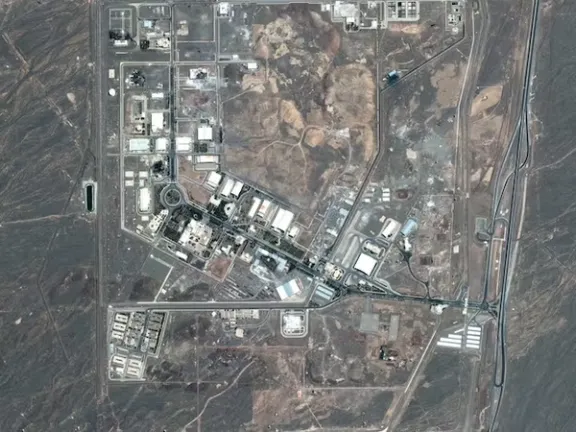Netanyahu Points Finger At Iran For Monday’s Terror Attack
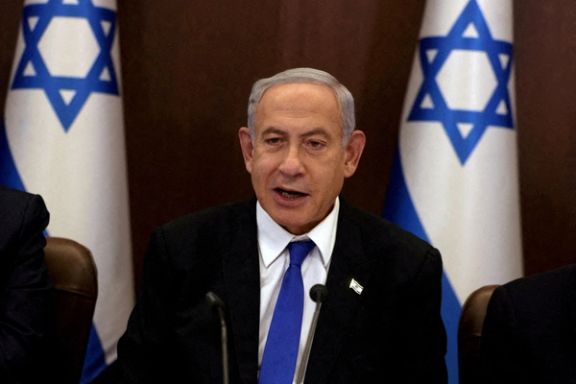
Israeli Prime Minister Benjamin Netanyahu has blamed Iran for a terror attack Monday that took the life a mother of three children near Hebron.

Israeli Prime Minister Benjamin Netanyahu has blamed Iran for a terror attack Monday that took the life a mother of three children near Hebron.
“We are in the midst of a terrorist assault encouraged, directed and financed by Iran and its proxies,” Netanyahu said as he visited the site of the attack.
A spokesperson for the Islamist Hamas group, backed by Iran that governs Gaza, Hazem Qassem, praised the attack and said it was a response to Israel's ongoing assaults on Palestinians.
Netanyahu was briefed by officials on the deadly attack and received an intelligence update on the area, especially Iranian efforts in the region and the intensive operational activity of the security forces in Judea and Samaria.
Israel, which was already hunting for a Palestinian suspected of shooting and killing two Israelis on Saturday, said it saw involvement from arch-foe Iran in the recent escalation of violence.
"The significant change that is taking place on the ground, it is related to Iranian funding and to the proliferation of weapons under the Iranian directive. Iran seeks every means to harm the citizens of Israel," said Defense Minister Yoav Gallant. He did not give any other details.
Since March when Iran reached an agreement to re-establish ties with Saudi Arabia it has intensified calls on Palestinians to attack Israeli targets
“It must be understood that a considerable portion of this terrorist wave comes as a result of outside guidance. We are using means, and we will use yet more, both offensive and defensive, to settle accounts with the murderers and those who dispatch them, near and far,” Netanyahu said.
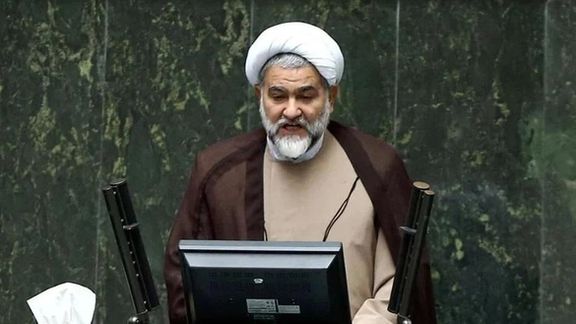
A senior Iranian lawmaker has said Reza Seqati, a director from Iran's culture ministry, deserves "to be thrown off the mountain" for having sex with another man.
Seqati, the former director of Iran's Ministry of Culture and Islamic Guidance in Gilan province, that acts as a hijab watchdog, was dismissed last month after a sex tape with a young man was leaked online. The video swiftly spread across social media platforms, raising a storm of controversy and public outcry.
On Monday, Hassan Norouzi called for the severest punishment. "If the allegations against Reza Seqati are substantiated, there is an unequivocal necessity for imposing stringent consequences. He must face the full force of the law and be shoved off the mountain and be killed to teach a lesson to others."
Seqati, who is married with three children, is a staunch advocate of mandatory hijab. During his tenure at the ministry of culture, he has made many attempts to enforce conservative cultural norms within the Gilan province. His initiatives included the launch of a hijab hypermarket and the establishment of a hijab exhibition, both aimed at promoting "Iranian-Islamic culture."
Shortly after the incident occurred last month, Iran's parliament speaker Mohammad Bagher Ghalibaf criticized not the content of the video but the act of leaking it to the public, saying that goes against Sharia law. This is a typical response from the regime, to focus on discrediting the source of evidence, rather than addressing the underlying issues of corruption or forbidden activities.
However, Sharia in Iran clearly forbids homosexuality among men and says it is punishable by death, a stance which now seems to be taken by the government.
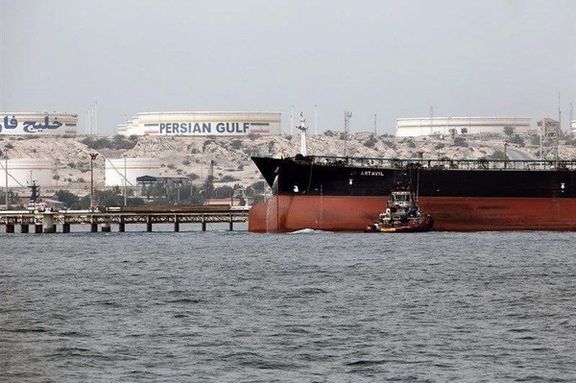
After the US-Iran hostage release deal, a report said Monday that Tehran boosted its oil exports to levels not witnessed since 2017, when there were no sanctions.
TankerTrackers.com that monitors global oil shipments, reported that in the initial 20 days of August, Iran dispatched an average of over two million barrels of oil daily, marking a more than 30-percent surge compared to the past few months.
Bloomberg and others who reported on the development did not offer a specific reason, but except the agreement announced in mid-August that the United States allowed the release of $6 billion of Iran’s money frozen in South Korean banks in exchange for five American hostages, no particular event or decision can be cited.
Iran’s oil exports began to decline in 2018 when former US President Donald Trump withdrew from the JCPOA nuclear accord in May 2018 and imposed third-party sanctions on Iran’s oil exports and international banking. By 2019, Iran was barely shipping 250,000 barrels per day and according to some of its senior officials at the time, it was earning less than $10 billion a year.
Changes started in late 2020 when Joe Biden won the US presidential election. In September of that year, he declared in a CNN op-ed that he aimed to reverse Trump’s decision and resurrect the Iran nuclear deal. China immediately increased Iranian oil purchases, pushing exports to about 700,000 barrels per day by mid-2021. During this period, Tehran engaged in indirect negotiations with Washington concerning the JCPOA, which persisted for 18 months without yielding any results.
After Washington announced last October that it was no longer pursuing the revival of the Obama-era deal, secret talks apparently continued with Iran, eventually resulting in the hostage release agreement. However, numerous media reports have indicated that the deal with Tehran goes far beyond the cash-for-hostages deal and the Biden administration has also agreed not to enforce sanctions in return for Iran slowing down its uranium enrichment.
The news of shipping 2 million barrels of oil per day appears to be the first indication that US oil sanctions on Iran are virtually defunct.
Although Iran is selling the oil with discounts to China and possibly to others now, even a $50/barrel price tag will bring in more than $100 million a day for Iran’s cash-strapped regime.
The only thing standing on the way of a $40 billion annual cash revenue for Tehran now is the US banking sanctions. So far, Iran has been unable to repatriate a significant part of the oil revenues in cash US dollars or other hard currencies. If Chinese and other third-country banks feel the US will look the other way, that restriction will also disappear.
Iran has shown no indication of having changed its anti-West foreign policy, or its malign behavior in the region. As a matter of fact, the United States has beefed up its naval and air power in the Persian Gulf in recent months, concerned that Tehran can continue threatening commercial shipping.
US Republican lawmakers and others who have already voiced serious concern with the hostage deal will see Iran’s oil export data as a vindication of their warnings that President Biden has made a secret deal with Tehran, with no Congressional oversight, as the law requires.
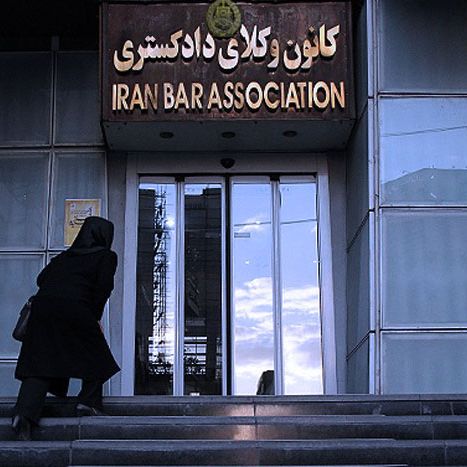
Controversy has erupted within the legal community in Iran as attorney license authority moves away from independent bar associations to the government.
During an open session of parliament on Monday, a new clause was passed into the resolution, compelling bar associations to adhere to decisions made by the Regulatory Board of the Ministry of Economy.
Lawyers across the country are outraged at this decision. Hassan Safadoust, head of the Central Bar Association, said, "The parliamentary resolution granting authority to the Ministry of Economy for issuing, extending, and revoking attorney licenses runs contrary to international legal norms, documents, and agreements."
In defiance, the board of directors of the Alborz Bar Association unanimously announced the cancellation of its scheduled activities.
Numerous lawyers have highlighted that the "parliamentary resolution pertaining to bar associations contradicts overarching judiciary policies."
Ali Pazouki, head of the Zanjan Bar Association, warned that the resolution could have irrevocable implications for the country, transforming the judicial system into a "commercial enterprise" and lawyers into "illicit traders and delinquents."
Mohammad Shivaei, a lawyer and member of the Central Bar Association, expressed his concerns on the social networking site X (formerly known as Twitter), stating that the parliamentary resolution relinquishes the authority of the legal profession and the right to defense to the government and the Ministry of Economic Affairs.
The Bar Association, as a long-standing professional and legal institution in Iran spanning four decades, has consistently encountered pressures from governmental bodies and the judiciary, resulting in gradual diminishment of its autonomy and authority through the enactment of various laws.
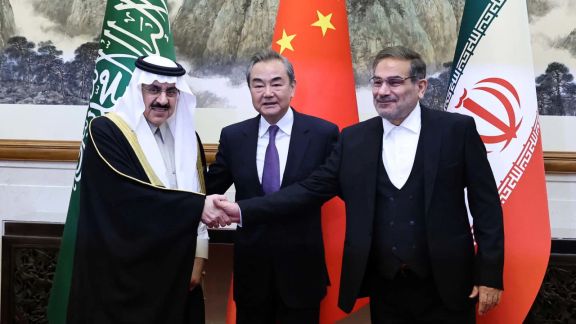
China's Ministry of Foreign Affairs has released a statement highlighting the positive improvement of diplomatic ties between Iran and Saudi Arabia.
The statement, released on Monday, referenced a telephone conversation between China's Foreign Minister, Wang Yi, and his Iranian counterpart, Hossein Amir-Abdollahian, discussing the ongoing efforts to foster better relations. Wang Yi underscored China's unwavering support for Tehran's core interests, leading to what he termed a "wave of reconciliation" in the Middle East.
The mediation by China resulted in a notable détente between Iran and Saudi Arabia earlier this year. Wang Yi commended Iran's initiatives in fortifying its relationship with Saudi Arabia, which included a significant meeting between Amir-Abdollahian and Saudi Arabia's Crown Prince Mohammed bin Salman in Jeddah.
"China appreciates the correct decision made by the Iranian side," Minister Wang Yi noted, reaffirming China's steadfast commitment to encouraging diplomacy in the region. He also emphasized the urgency of reinstating the Joint Comprehensive Plan of Action (JCPOA) to comprehensively address the Iranian nuclear issue.
In recent years, Iran's nuclear program has sparked international debates. While Iranian authorities have expressed a willingness to engage with the West, certain elements within Iran have signaled a more assertive stance. A report released in March, suggests that Iran has been producing uranium enriched to 60% purity — a level for which experts say Tehran has no civilian use.
Negotiations to revive the JCPOA commenced in 2022 and have faced several obstacles. Despite international diplomatic efforts, Iran continued to augment its enriched uranium stockpile, raising concerns over its nuclear ambitions and its capability to weaponize nuclear materials.
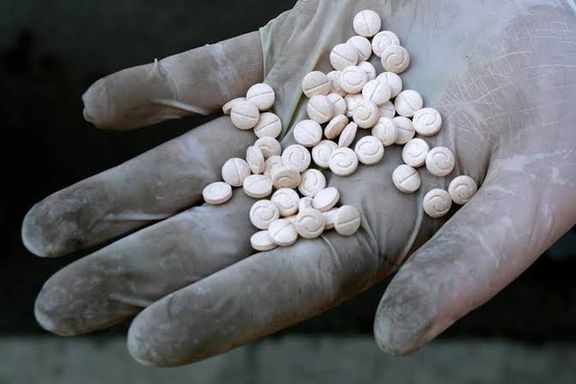
The Former Deputy Chief of Iran's anti-narcotics police has issued a warning about the emerging challenge of increased Captagon abuse nationwide.
In a recent interview with Etemad daily, Mohammad Masoud Zahedian said abuse cases of Captagon, a synthetic amphetamine-type stimulant known by its trademark name, have spiked in recent monthys, since the discovery of an illegal production center in Iraq.
Zahedian expressed the necessity for heightened vigilance in response to this concerning trend, saying that the wave of Captagon consumption has only just begun.
Speaking about the local drug landscape, Zahedian pointed out that while affluent individuals in Tehran are known to consume cocaine, the overall prevalence of cocaine consumption in Iran is limited due to the high associated costs.
He further noted that whilst Captagon consumption is widespread in Arab and African nations, the narcotic is now more widely used in Iran.
Current statistics from 2021 report that Iran has over 12 million drug abusers, with 4.5 million classed as permanent users. Among these, 10% are women and a significant number are children.
Iran, long recognized as a major global conduit for drug trafficking to European markets, allegedly facilitated by the Islamic Revolutionary Guard Corps (IRGC).
One of the key reasons for the Iranian government's opposition to the ratification of Financial Action Task Force (FATF) bills is its reluctance to open itself up to international audit regarding the role of the IRGC in drug trafficking and the potential laundering of illicit proceeds.
